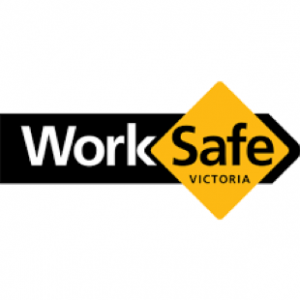
Statement of Regulatory Intent – Regulatory approach to Australian Work Health and Safety legislation – COVID-19
This statement applies to all Work Health and Safety (WHS) Regulators in jurisdictions that have implemented the model WHS laws, as well as in Western Australia. The statement does not apply to the WHS Regulator in Victoria at this time.
This statement sets out the enforcement approach that Work Health and Safety (WHS) Regulators (excluding Victoria) will take to ensure compliance with Australian WHS laws during the COVID-19 pandemic.
WHS Regulators recognise that the COVID-19 pandemic has created an exceptional set of circumstances and will have significant impacts on a person conducting a business or undertaking (PCBU) e.g. employers, workers, officers and other persons with duties under WHS laws.
Arrangements to apply while public health orders in place
WHS Regulators understand the orders in place across Australia in relation to public gatherings will impact Australian workplaces. While these orders are in place, WHS Regulators will take into account the unprecedented pressure on industry and apply a common sense and practical approach to interactions with workplaces. Compliance and enforcement activity will continue; however, the focus will be on matters that pose serious risks to health and safety as well as advisory support. WHS Regulator’s actions will be proportionate with a focus on what is reasonably practicable in these exceptional circumstances.
In particular, WHS regulators will take into account an employer’s ability to meet its WHS duties given the constraints associated with the pandemic. This may include duties related to:
- training, such as participation in face-to-face training and practical hands on training demonstrations
- working from home arrangements, and provision of hygiene products.
Generally, WHS Regulators will take a supportive and educative approach to compliance during this time provided duty holders have made genuine attempts to comply with requirements, but compliance is affected due to factors outside their direct control. However, WHS Regulators may use enforcement tools such as prohibition notices where appropriate, particularly where actions or omission have resulted in serious health and safety risks to workers or the community.
WHS Regulators will continue to respond to matters involving serious incidents or fatalities in the usual way, including seeking evidence to determine causation or requiring implementation of ‘make safe’ provisions. The method of doing this may vary depending on the site, emergency services on site or other ways of gathering evidence and information.
WHS Regulators will also continue core administrative functions such as processing high risk work licences. However, most campaigns and proactive assessment activities will be postponed.
WHS Regulators will also minimise face to face interactions based on the level of risk. Each has a risk assessment protocol to identify under what circumstances inspectors will continue to visit workplaces. All non-essential meetings, travel or events will also be postponed or cancelled, as appropriate.
Employers
All employers must prepare and take action to protect workers and others at their workplace from the risk of exposure to COVID-19 so far as is reasonably practicable.
All employers should:
- have a plan in place to respond to the issues created by the pandemic
- review their exposure and infection control policies and procedures, actively promote social distancing, good hand and respiratory hygiene and increase cleaning of common areas within the work environment
- develop and implement safe systems of work (in consultation with workers and/or their Health and Safety Representatives (HSRs) that take into account directions and advice provided by health authorities, and
- keep monitoring the COVID-19 situation as it develops, relying on information from authoritative sources such as public health authorities.
More information on managing the risks of COVID-19 is available on the COVID-19 Information for workplaces page.
Health and Safety Representatives (HSRs)
HSRs are encouraged to work collaboratively with employers to consult on WHS risks and controls during this time. HSRs are entitled to monitor the rate of exposure and infection of illness or disease in the workplace and work with employers to implement appropriate controls. However, HSRs are not entitled to personal medical information of other workers without the consent of the worker.
Workers
Workers have obligations under WHS laws to do what is reasonably practicable to protect themselves and others at the workplace. If a worker believes they are at risk of infection of COVID-19 and they have been at work, they should inform their manager or WHS representative as soon as possible. If they are not satisfied with the response, they should contact their WHS Regulator.
More information
WHS Regulators will continue to monitor the situation and engage with industry and employee and employer representatives to provide advice and assistance during this period.
More information is available on the COVID-19 Information for workplaces page.